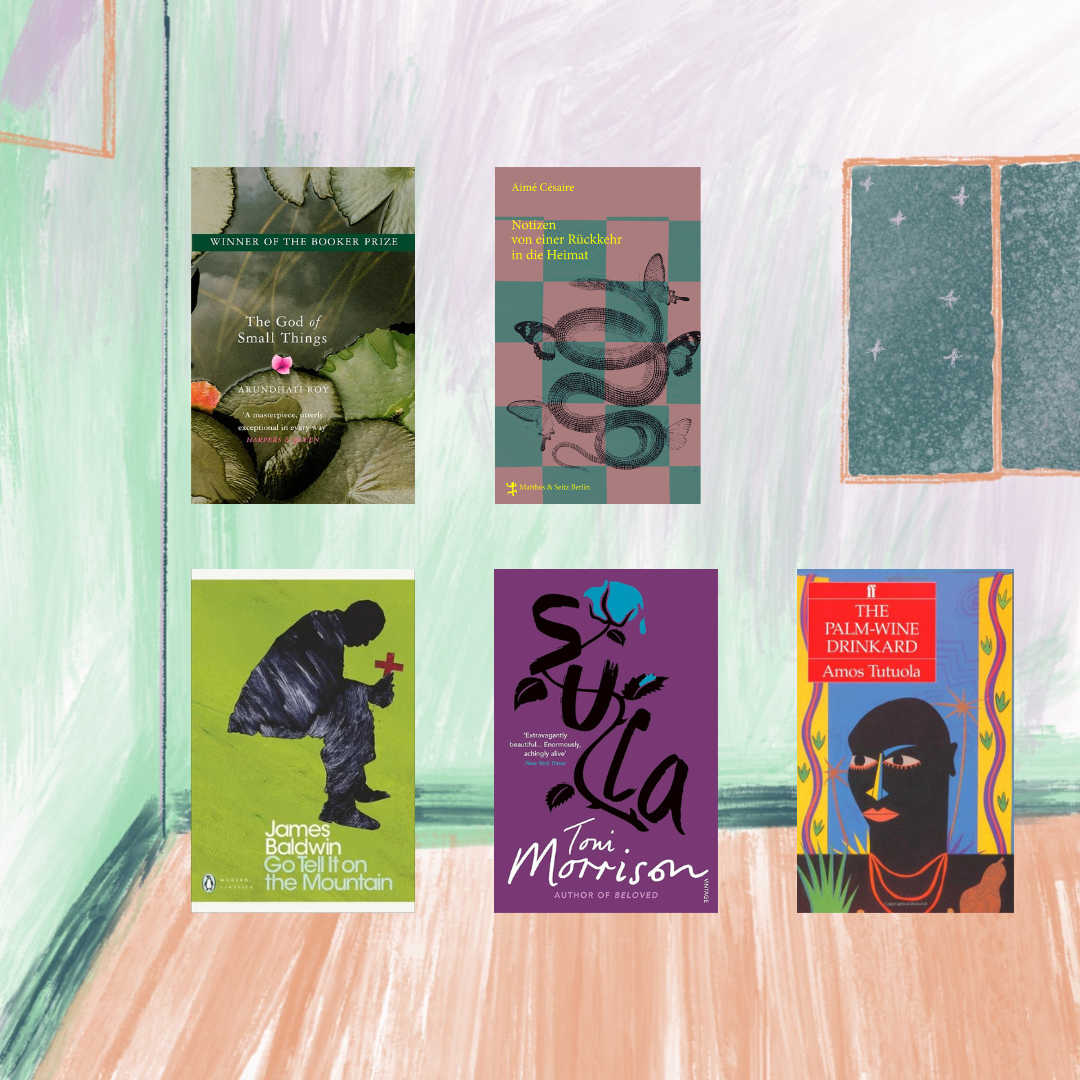
Where to begin? 5 postcolonial classics
In the first few months of our [poco.lit.space] project, everything centered around the question ‘What is postcolonialism?’. We’ve published numerous essays, and the list of our reviews has also expanded. If you are interested in postcolonial literature but don’t really know where to begin, we put together a list of 5 postcolonial classics for you.
Go Tell it on the Mountain – James Baldwin
For Baldwin’s work, the Go Tell it on the Mountain is a key text, which is responsible for setting in motion his trajectory as an author and visionary of the US-Afro-American civil rights movement. Published in 1953, the novel has not lost any of its relevance. The system of power, racism and discrimination in US-American society, remains incredibly effective and Baldwin’s novel remains well worth reading.
The God of Small Things – Arundhati Roy
Arundhati Roy’s The God of Small Things is one of the most widely known postcolonial novels. It won the Booker Prize in 1997 and has been translated into more than forty languages. Roy says in an interview that the emotional texture of the book is autobiographical. The historical context of The God of Small Things corresponds to the rise of communism in Kerala and the Naxalite movement. The dehumanisation of Dalits is one of the main concerns of the novel. The marginalised groups reflected in the novel have gained more visibility but the discrimination continues to this day.
The Palm-Wine Drinkard – Amos Tutuola
The book came out in 1952 and is widely celebrated as the first West African novel in English published internationally. The story is a quest narrative that follows its first-person protagonist on his journey into other villages and maybe other worlds, inhabited by creatures living and dead, in pursuit of his deceased palm-wine tapster. Along the way, our hero encounters adventures wonderful, bizarre, horrific and – in case the premise and first lines haven’t made it clear – funny.
Cahier d’un retour au pays natal – Aimé Césaire
Cahier d’un retour au pays natal by Aimé Césaire blows up literary and political categories: it is a long poem, but at times it reads like a manifesto; it describes the journey and the search for identity of a young man from Martinique, has autobiographical features, and yet is also a journey into the past that recalls, among other things, the transatlantic slave trade.
Sula, first published in 1973, is the second novel of Nobel Prize winner Toni Morrison, whose writing offered up a multi-faceted language about Black experiences, and which continues to serve as a great source of inspiration to many. Sula is set in a Black neighbourhood on a hill called “Bottom” on the outskirts of the fictional town of Medallion, Ohio. Through several characters, readers encounter, chronologically, the details of life in the neighbourhood between the years 1919 and 1965, a time starkly determined by the World Wars. The character of Sula Peace plays a central role for the place. Sula defies social structures and is secretly admired for this on the one hand, but at the same time serves as the place’s scapegoat.
